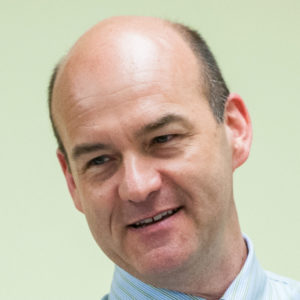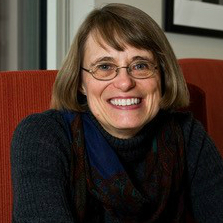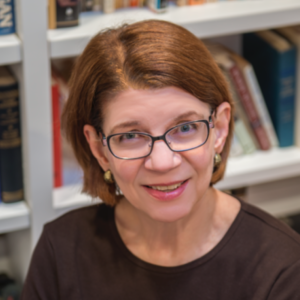Civility & Public Discourse
Reflect on the responsibility of citizens to cultivate and wield the power of political speech.
June 26–30, 2023
Washington, DC
The second week of Political Studies will explore how political leaders wield power and exert influence through speech.
Our first seminar will delve into the principles of political rhetoric, both what it is and what its potential virtues and vices may be. Fellows will study classic examples of rhetoric and contemporary political speeches, with a view toward understanding the interrelationship between political rhetoric and emotions, and how these connections can be both useful and dangerous, especially for democracies.
Our second seminar will examine two Shakespearean plays—Macbeth and Henry V—and their depiction of tyranny and kingship. Shakespeare’s treatment of princely rule broaches many of the themes that Machiavelli discusses in The Prince, thus challenging us to consider how he might be testing the provocative claims of the notorious “Machiavel”—from the necessary qualities for a successful king to appearance vs. truth, the different demands of rulers in pagan and Christian times, and the role of war in domestic politics.
Image: John Jones, Mr. Henderson in the Character of Macbeth, 1787
Robert Bartlett on rhetoric & democracy
This course is part of our residential Political Studies Program. Fellows participate in morning seminars and meet prominent men and women in public life over afternoon and evening sessions. Up to 36 fellows will be selected.

Robert C. Bartlett is the Behrakis Professor of Hellenic Political Studies at Boston College. His principal area of research is classical political philosophy, with particular attention to the thinkers of ancient Hellas, including Thucydides, Plato, and Aristotle. He is the co-translator of a new edition of Aristotle’s Nicomachean Ethics.

Robert C. Bartlett is the Behrakis Professor of Hellenic Political Studies at Boston College. His principal area of research is classical political philosophy, with particular attention to the thinkers of ancient Hellas, including Thucydides, Plato, Xenophon, and Aristotle.
He is the author or editor of eight books, including Sophistry and Political Philosophy: Protagoras’ Challenge to Socrates, The Idea of Enlightenment, Plato’s Protagoras and Meno, and Xenophon’s The Shorter Socratic Writings. He is also the co-translator of a new edition of Aristotle’s Nicomachean Ethics (University of Chicago Press, 2011). He has also published articles in the American Political Science Review, American Journal of Politics, Journal of Politics, Review of Politics, and other leading scholarly journals.
Before coming to Boston College, Robert Bartlett served as the Arthur M. Blank/National Endowment for the Humanities Distinguished Teaching Professor at Emory University. He is a graduate of the University of Toronto and holds an MA in Classics and a Ph.D. in Political Science from Boston College.

Vickie Sullivan is the Cornelia M. Jackson Professor of Political Science and teaches and studies political thought and philosophy. She also maintains teaching and research interests in politics and literature. She has published extensively on Montesquieu and Machiavelli and is the co-editor of Shakespeare’s Political Pageant.

Vickie Sullivan is the Cornelia M. Jackson Professor of Political Science and teaches and studies political thought and philosophy. She also maintains teaching and research interests in politics and literature.
She has published the monographs Montesquieu and the Despotic Ideas of Europe (2017); Machiavelli, Hobbes, and the Formation of a Liberal Republicanism in England (2004); and Machiavelli’s Three Romes: Religion, Human Liberty, and Politics Reformed (1996 and 2020). She is the editor of The Comedy and Tragedy of Machiavelli ; the co-editor of Shakespeare’s Political Pageant: Essays in Politics & Literature ; and the co-author of “Machiavelli’s Political Thought” in Oxford Bibliographies.
Her articles have appeared in The American Political Science Review, History of European Ideas, History of Political Thought, Political Theory, Polity, and Review of Politics.
Readings:
Epideictic Rhetoric
Judicial Rhetoric
Deliberative Rhetoric
Discussion Questions:
Readings:
On Pathos
On Ethos
On Logos
Discussion Questions
Readings
Rhetoric & Style
Rhetoric in Times of Crisis & Doubt
Discussion Questions
Readings:
Discussion Questions
Readings:
Readings:
Reading Questions & Writing Prompts:
Macbeth, Act I
Macbeth, Act II
Readings:
Reading Questions & Writing Prompts:
Macbeth, Act III
Macbeth, Act IV
Readings:
Reading Questions & Writing Prompts:
Macbeth, Act V
Henry V, Act I
Readings:
Reading Questions & Writing Prompts:
Henry V, Act II
Henry V, Act III
Readings:
Reading Questions & Writing Prompts:
Henry V, Act IV
Henry V, Act V

Mary Elizabeth Halper
Mary Elizabeth Halper is the Associate Director at the Hertog Foundation. She graduated with B.A.s in Philosophy and in Classics from the University of Dallas and has since been devoted to liberal education in various forms. She earned her Ph.D. in Philosophy from the Catholic University of America, where she defended a dissertation on the political philosophy of Plato’s Protagoras and Gorgias.

Diana Schaub
Diana Schaub is a nonresident senior fellow at the American Enterprise Institute (AEI), where her work is focused on American political thought and history, particularly Abraham Lincoln, Frederick Douglass, African American political thought, Montesquieu, and the relevance of core American ideals to contemporary challenges and debates. Concurrently, she is Professor Emerita of Political Science at Loyola University Maryland, where she taught for almost three decades.

Daniel DiSalvo
Daniel DiSalvo is a Senior Fellow at the Manhattan Institute’s Center for State and Local Leadership and an Assistant Professor of Political Science at The City College of New York-CUNY. His scholarship focuses on American political parties, elections, labor unions, state government, and public policy.

William Inboden
William Inboden is Executive Director and William Powers, Jr. Chair at the Clements Center for National Security at the University of Texas-Austin. Previously he served as Senior Director for Strategic Planning on the National Security Council at the White House.

Martha Bayles
Martha Bayles is a fellow at the Institute for Advanced Studies in Culture at the University of Virginia, and since 2003 she has taught humanities at Boston College. She is currently at work on a monograph on the threats to independent journalism around the world; and a book about the importance of “voluntary restraint” in the American tradition of free speech.

Mary P. Nichols
Mary P. Nichols is Professor Emerita of Political Science at Baylor University. She is author of Thucydides and the Pursuit of Freedom, and Socrates on Friendship and Community: Reflections on Plato’s Symposium, Phaedrus, and Lysis. She has delivered lectures on ancient political theory, Shakespeare, and film.

Hugh Liebert